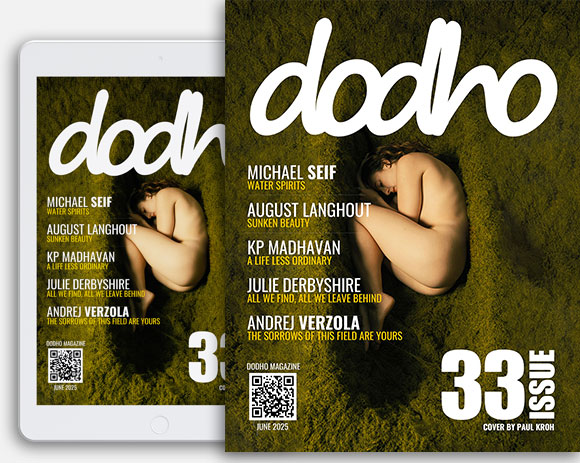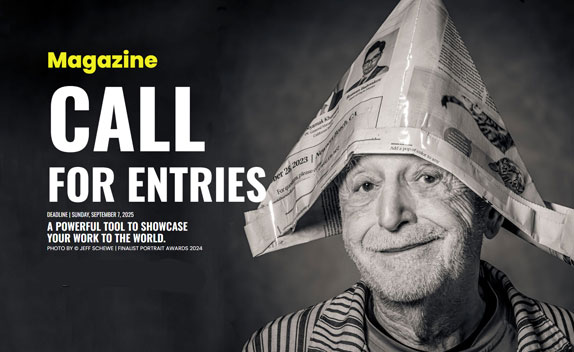[ENTER], [HOME], [CONTROL] and [SPACE]: one click of a keyboard command and portentous decisions are made, helping to change the world! – or filling it with more data garbage … It is several years now since standard computer commands made their way into our everyday lives, giving us the impression of calm efficiency whenever we send or process information.
That impression extends even to a feeling that we are shaping reality – on-line or off-line, by virtual or by material means. Progressive digitalisation would have us believe that today’s world is simple; mastery a matter of executing a keystroke. Sadly, the opposite is true. Away from the keyboard, from commands and screens, the world is in fact becoming extremely complicated. Alienation of the individual is of increasing concern and is given voice in ever more crises and flash points. The resulting experience of reality is one of turmoil and upheaval – a situation at ‘breaking point’. At the coming 7. Triennial of Photography Hamburg 2018 the camera lens has been tasked with apprehending and reflecting the breaking point as a concept.
“The discourse is all about radical change, the crisis, the critical juncture: we cannot open a paper, watch a film or even go to work without encountering these terms, either directly or indirectly. We are confronted by global change on social, economic, ecological, biological, technological and demographic levels. In the end it affects us all,” writes Krzysztof Candrowicz, artistic director of this year’s Triennial of Photography Hamburg. He goes on, “Communities are undergoing change faster than we can comprehend. Technology continues relentlessly to reformulate society, and so-called ‘global culture’ peddled by a global market and disseminated by social media is a virtual collective illusion. There is an urgent need to define, to understand and to control this new reality. The speed and extent of changes, as humans perceive them, are simply overwhelming.”
System and sensitivity: the role of contemporary image production
How does photography approach this ‘distorted reality’ of life? How do today’s images reflect the situation – by providing a 1:1 representation, or by fading it out at the edges? Can we say that photography suggests solutions? The concept of this year’s Triennial makes pointed use of computer commands and digital dashboards as levers of reality. Tying in with the symbolism and visuals of the keyboard, such ‘functions’ highlight the difference between the terminology and categories by which we administer the world and the places where the true balance of power is revealed. In this regard, the bracketed titles above all suggest the role of modern photography as both filter and catalyst. Can images themselves function as triggers, given the possibility of infinite multiplication, ‘viral’ distribution and subsequent imprinting on the collective consciousness? What role can they play and how does the single photograph survive amongst a flood of images, where economy of attention is paramount?
“There are many ways of approaching change. And indications of how to identify change can be taken from the most banal, the most everyday of objects, such as the computer keyboard. Keys are our means of using a computer, but we are mostly oblivious to the powerful concepts behind them. We might make use of command keys hundreds of times every day without so much as a thought for what those words signify. Here, keyboard commands serve as exhibition titles. Together, they tell a collective story of photographic composition, at the same time making us think about the condition of our modern global communities”, says Candrowicz.
Themes of the 7. Triennial of Photography Hamburg 2018
The symbolic terminology of the keyboard is the overarching theme of the entire Triennial exhibition programme. As per tradition, the major photographic exhibition centres and art institutions throughout the city will be involved, as well as ‘Off’ spaces and galleries. For instance, the heading [HOME] asks questions about the experience of home and homelessness in today’s global society; at Hamburger Kunsthalle, [CONTROL] focusses on political power relationships; the approach to public spaces and the development of urban concepts is the theme of [SPACE] at the House of Photography / Deichtorhallen Hamburg; and [SHIFT] at the Kunstverein in Hamburg investigates how the individual adapts to altered conditions. These key terms form the umbrella under which Hamburg’s museums will, through diverse artistic concepts and types of presentation, be offering a broad range of approaches to the idea: Breaking Point. Searching for Change. Monographs by famous photographers including Anton Corbijn, Shirana Shahbazi and Joan Fontcuberta will complement the thematically curated exhibitions. Alongside the very first [OFF] TRIENNALE, numerous galleries, photographic initiatives and new exhibition spaces will expand the programme still further. A pivotal point of the Triennial opening week is the Festival Centre on the Deichtorhallen-Square. Several academies and initiatives will have stands next to the [ENTER] exhibition, which foregrounds political, social and ecological issues. A unique collaborative endeavour, the Triennial of Photography Hamburg – now in its seventh incarnation – will transform the cultural scene of the city from 7 June, once again turning Hamburg into Germany’s centre of photography.
Breaking Point – The book on the Triennial event
The book Breaking Point presents the wide variety of projects and approaches to the above- mentioned complex subject, being a valuable tool beyond the bounds of the festival. Diverse issues are addressed in chapters, which together present an exciting kaleidoscope on the topic of photography. We begin to see that photography is an important means of aesthetic expression, even and perhaps especially in difficult and apparently unmanageable times. The book will be published by Hartmann Books, Stuttgart and will contain 352 pages with 300 illustrations. It is available for order online for € 39,00.
Trimag – The Magazine of the Triennial
A new feature of the 7. Triennial of Photography Hamburg 2018 is the magazine TriMag that is giving an overall overview on exhibitions, programme details and special features for visitors of the Triennial. With an edition of 40.000 prints it is giving an overall overview on exhibitions, programme details and special features for visitors. It will be available for free in every participating art institution around town.
Triennale der Photographie Hamburg
7 Jun – 30 Sep 2018
Deichtorstr. 2 / D
22099 Hamburg






